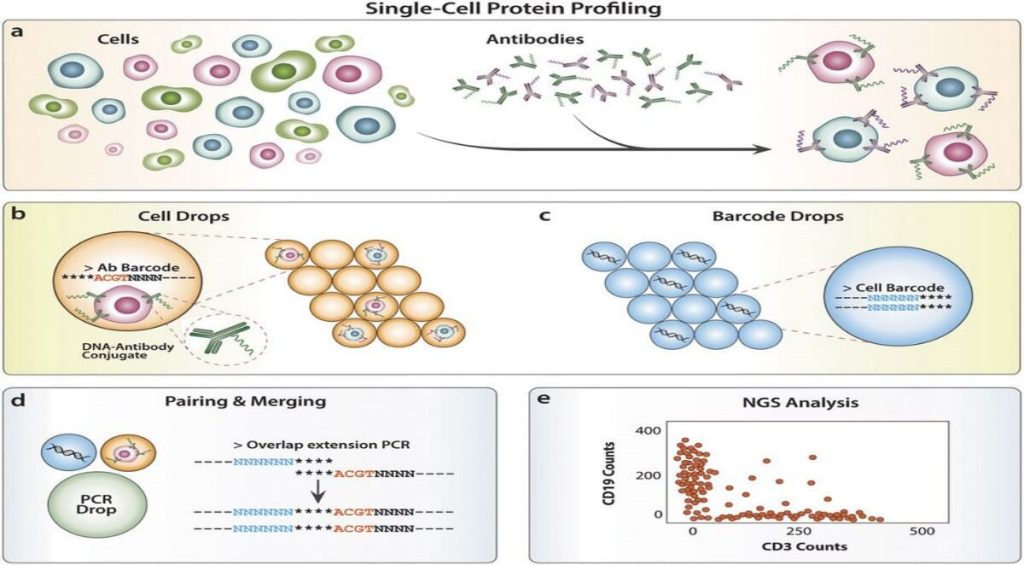The polymerase chain reaction (PCR) has a wealth of applications in research, but perhaps one of its most challenging roles in single cell analysis, amplifying the DNA from just a single cell, or a very small sample of cells.

Real-time single cell PCR can be used in gene expression analysis. This has a role in looking at the differences in gene expression and elucidating mechanisms of disease between individual cells. Many tissues, both healthy and diseased, are heterogeneous – for example, the pancreas includes alpha cells, beta cells, delta cells, PP cells and epsilon cells. Tumours can be a mixture of different cells, and two tumours in the same individual can have very different populations of cells. Because of this, looking at the gene expression profile from a number of single cells is likely to give a more representative view of the population.
What are the uses of single cell PCR in research?
Single cell PCR can be used to compare the gene expression profiles in cells from healthy people and people with a certain disease, or even looking at differences between healthy and diseased cells in one individual, or two populations of healthy cells in the same organ. Gene expression analysis can also help to explore the mechanisms behind self-renewal and differentiation in human pluripotent stem cells.
In an example, researchers from the Queensland Institute of Medical Research used single cell PCR to look at the different patterns of expression of cytokine genes in populations of CD4 cells following exposure to an immune stimulus in mice.
Single cell PCR is used in metagenomics research to look at the genes in mixed populations of bacteria and see who these genes in individual bacteria affect the population as a whole. Single cell PCR is particularly important in looking at those bacteria that are difficult to culture in the laboratory.
The technique also has a role in the development of transgenic animals developed as models for drug and disease research.
What are the uses of single cell PCR in diagnosis?
Single cell PCR is used in pre-implantation diagnosis, where a single cell is removed from the embryo to test for inherited diseases such as beta-thalassaemia during IVF (in vitro fertilisation). It also has a role in prenatal diagnosis for genetic disorders, and antenatal screening.
The challenges
PCR analysis from a single cell or from very small samples of cells is challenging because it involves minute quantities of DNA, and can miss changes on non-amplified alleles


